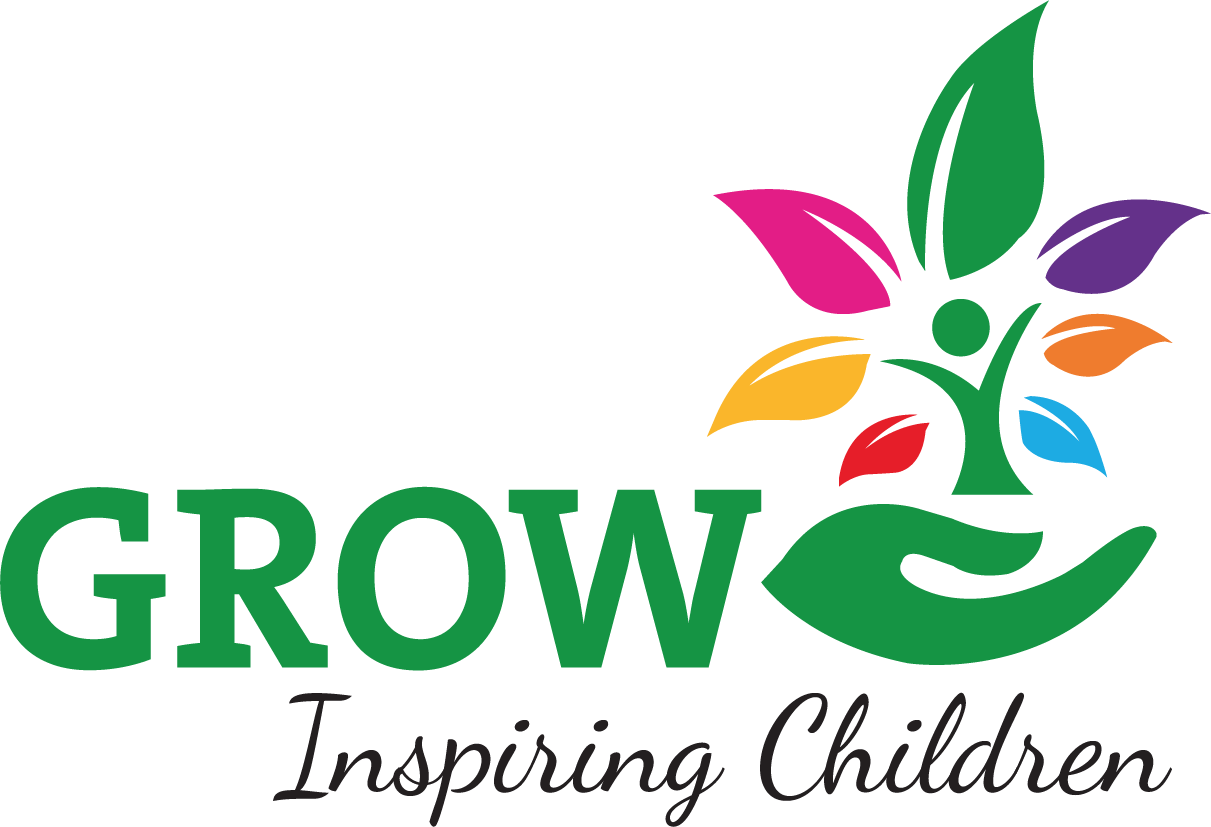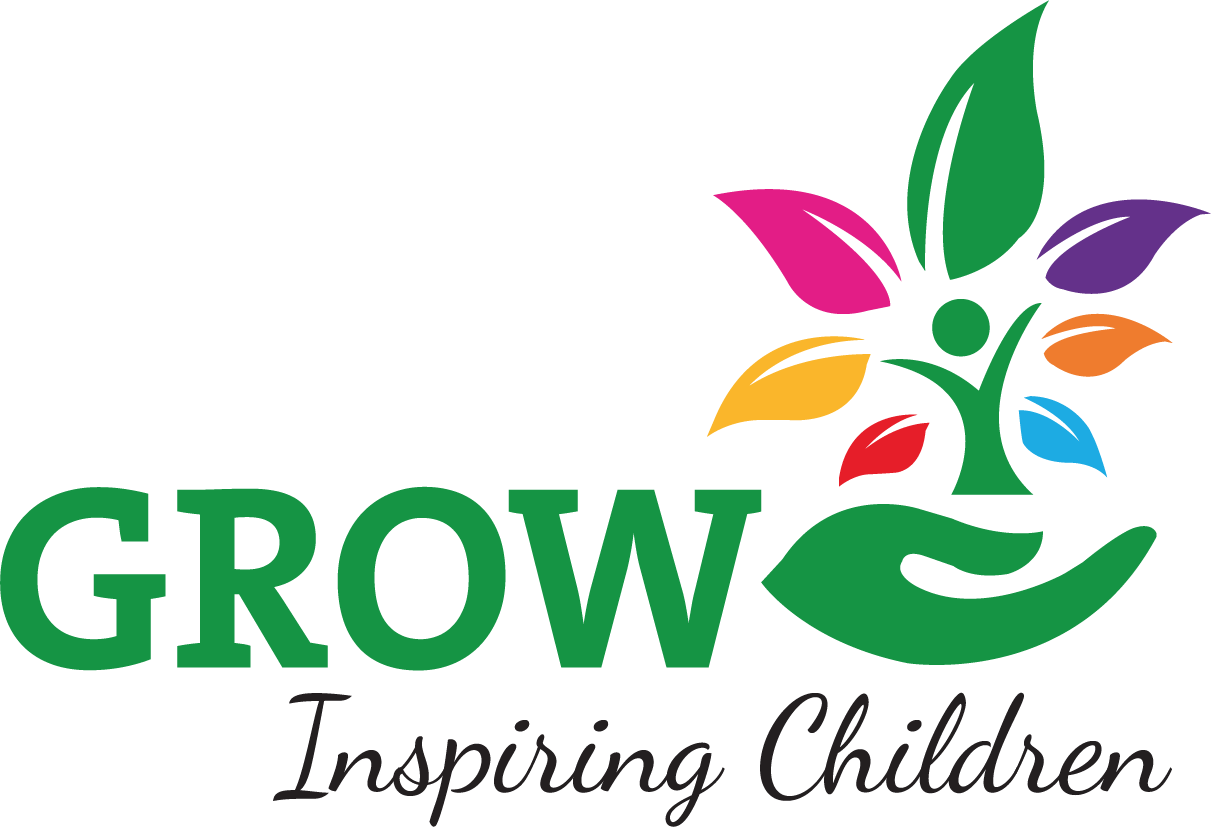Curriculum Intent

To enable staff to meet the wide range of abilities and needs, the curriculum provided by GROW is flexible, person-centred and engaging. Staff are skilled in ensuring that all opportunities for learning are utilised and the flexible, adaptable nature of the team and curriculum enables positive outcomes for our children.
Whilst at times, staff may use a child’s interest to increase engagement, staff also try and broaden their knowledge and experiences through introducing them to new topics aiming to widen their worlds. Children are provided with opportunities to build upon prior knowledge, increasingly applying it to a wider range of skill-based activities. Knowledge is transferred or applied to different and purposeful contexts.
The GROW staff are skilled at building positive relationships and supporting children through co- regulation. As a trauma perceptive provision this is achieved through the following key values:
Compassion and kindness- Staff are proficient at interpreting and understanding stress related behaviour and supporting children to learn to manage their feelings and decisions in safer ways. Children learn to understand themselves and their own behaviours through personalised teaching and develop their skills of self -regulation, leading to better engagement in learning. Staff also apply this knowledge and understanding to how they approach and work with families. With a kind, non- judgemental approach, families can rebuild faith in professionals and they often report improvements in life at home once children join our schools.
Hope - Staff hold high expectations and aspirations. Children build confidence and pride in their achievements, motivating them to progress holistically.
Connection and Belonging- Relationships are the agents of change and the foundations of success and progress. The adults in GROW are empathetic and support learning. Through well managed, safe relationships, healing can occur; brains can repair, and learning can take place. Learning environments promote a sense of inclusivity and opportunities for holistic progress are valued alongside academic. Bespoke, personalised planning supports children to feel they belong and that they are valued as an individual. Children are taught by adults with whom they have developed trusting relationships. These adults are able to show empathy and compassion thus inspiring positive learning experiences. When children are ready, they may access learning from within the mainstream setting of the host school if appropriate.
NURTURE, ENGAGEMENT, STRUCTURE, CHALLENGE
Personal, Social and Health Education
PHSE is embedded throughout the GROW curriculum because we believe children need to feel safe and confident in order to be ready learn.
Research has identified the six core strengths that children need to learn in order to be resilient and compassionate. We support children to form and maintain healthy emotional relationships, self- regulate, join and contribute to a group and be aware, tolerant and respectful of themselves and others. This enables them to be resourceful, successful in social situations and resilient. Targeted teaching of these key skills underpins the Grow curriculum. Explicit teaching of neuro-science helps our children understand how the brain works.
Outside time for the children to move and refresh their brain is very important, this helps children who may become dysregulated to enter back into their window of tolerance.
Children may also attend social groups to help them build on their friendships and understand cues in social situations. Children are challenged to share and listen to the views of others; diversity and equality are explored within the PSHE curriculum. This is taught intentionally in planned activities, but also at times as a response to an incident, or staff observation. All prejudice related views are explored and tackled safely to support our children to hold socially acceptable views. We teach learning skills through a Growth MIndset methodology in conjunction with self-regulation strategies. We use a restorative approach with structured conversations used to repair relationships reflect upon actions.
The Value of Play
Within each day the GROW team dedicate time to both structured and unstructured play; some planned and some spontaneous. Staff have a well-developed understanding of the importance of supporting children to develop their skills of play, in many different forms both solitary, alongside and with peers, inside and outside. These opportunities are woven through all curriculum areas and our approach to learning.
Reading
Children are given daily opportunities to read as a discrete activity, but reading is also embedded across the curriculum.
-
Reciprocal teaching to build up understanding of what they are reading
-
Reading to help support self-regulation
-
Discrete activities to build up phonological awareness to decode words, learning ‘tricky’ words
which cannot be decoded easily and opportunities to develop fluency and expression when
reading
-
Reading is built into everyday tasks to help children understand the importance of reading such
as following recipe instructions when cooking
-
Celebrating the enjoyment of reading books by dressing up as our favourite book characters and
for example taking part in World Book day activities
-
Stories are shared on a regular basis to instil a ‘love’ of reading
NURTURE, ENGAGEMENT, STRUCTURE, CHALLENGE
Children are taught to decode words using phonics, learn to recognise common exception words by sight and develop their comprehension skills through targeted questions, so that they can make predictions and comparisons and answer questions relating to characters, settings, events and information. Children have access to a wide range of texts and are taught to understand the features, purposes and layout of different genres and engage in reading in different subjects.
Writing
Opportunities are provided for children to develop the fine motor skills required to progress in writing, combined with phonics teaching and confidence building activities.
To boost confidence in spelling, children are assessed on their Common Exception Words and practise these regularly. Where appropriate phonics is taught routinely.
To develop an interest in writing, tasks may be planned with children’s interests in mind and technology used to help overcome barriers to writing. Links are made to the National Curriculum next steps with emphasis on the key skills of grammar, spelling and punctuation.
Children are taught to write for a range of purposes thus engaging them in their learning. Key features of genres are carefully explored and modelled.
Maths
Staff utilise and adapt the National Curriculum through published recognised Schemes of Learning. This supports planning and ensures progression through a mastery approach. Children are given opportunities to apply their new learning to practical situations and staff prioritise life skills, such as basic number, time and money, within the curriculum. To support independent learning, children self- select and use appropriate concrete apparatus to explore concepts, developing fluency, reasoning and problem-solving skills.
PE
Physical activity sessions may include outdoor play, forest schools, running games, dance and movement to music, walking, or gardening. Children may also be able to join in PE lessons within their host school. There are limited opportunities for children to attend swimming lessons, horse riding sessions and other offsite activities that are appropriate to the season.
Topic
Foundation subjects are mostly taught through a thematic curriculum. Topics are selected to promote engagement and to provide a broad and balanced curriculum. Cross-curricular links are made wherever possible to link learning. We sometimes use the referring school curriculum in order to enable pupils to engage with it when back in school.
Summary
Children in Grow are helped to sense that they belong and that they are safe to take the risks learning can present. Through skilful adjustment, the balance between children maintaining regulation and educational challenge is achieved.
NURTURE, ENGAGEMENT, STRUCTURE, CHALLENGE
